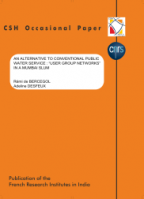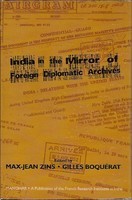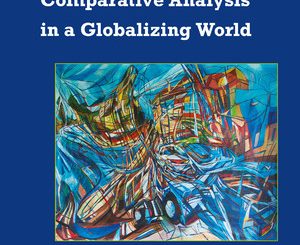[CSH Seminar #ONLINE] Beyond Access: Digital governance and implications for accountability in post-Pandemic India (A. Khan)
The Centre de Sciences Humaines (CSH) is pleased to invite you to the Online Session
of the CSH Seminar Series with:
Dr. Aasim KHAN
(IIIT Delhi and Associate Researcher of CSH)
Beyond Access:
Digital governance and implications for accountability in post-Pandemic India
on
Monday. 15th November 2021, 05:00 pm onwards
via Zoom:
https://us06web.zoom.us/j/84643494311?pwd=ak9zM3lqVjhpOXVqWUgyRG8wL3JhUT09
To get priority access in case of large affluence, kindly register to:
neeru[dot]gohar[at]csh-delhi[dot]com
Abstract: In the course of the ongoing Covid-19 pandemic, public discourse around digital initiatives has focused either on the lack of access to the internet or the need to enhance the IT skills of citizens. But democratic governance isn’t simply an exercise in making governments and officials more accessible, but in making the state accountable to the governed. This means ensuring that the voice of the most marginalized is heard in decision-making, and also protecting it from surveillance capitalism. Addressing this challenge requires us to think beyond problems of access, and frame the issues in relation to the historical institutions that organize and help us respond to the emergent risks that accompany technological changes. In this paper, I place the digital governance initiatives in India within such a framework and evaluate the public response in terms of its inclusivity as well as in terms of empowering the civil society vis a vis private interests that increasingly mediate on behalf of the state.
 Aasim Khan has a PhD in Politics and Public Policy (Contemporary India) and is currently Head and Assistant Professor, Department of Social Sciences and Humanities, IIIT- Delhi. As a social scientist, he has cross-disciplinary interests in theories of social media, social networks and Big Data. In political theory, he has a keen interest in comparative politics of the Internet, new media and their implications for governance, policy and more broadly democracy in the contemporary world. He was educated in Delhi (St. Stephen’s College and Jamia Millia Islamia) and London (SOAS and King’s College London). Besides academia, he was worked in broadcast journalism and international development. Website: https://www.iiitd.ac.in/aasim
Aasim Khan has a PhD in Politics and Public Policy (Contemporary India) and is currently Head and Assistant Professor, Department of Social Sciences and Humanities, IIIT- Delhi. As a social scientist, he has cross-disciplinary interests in theories of social media, social networks and Big Data. In political theory, he has a keen interest in comparative politics of the Internet, new media and their implications for governance, policy and more broadly democracy in the contemporary world. He was educated in Delhi (St. Stephen’s College and Jamia Millia Islamia) and London (SOAS and King’s College London). Besides academia, he was worked in broadcast journalism and international development. Website: https://www.iiitd.ac.in/aasim
jt[dot]martelli[at]csh-delhi[dot]com
laurence[dot]gautier[at]csh-delhi[dot]com









